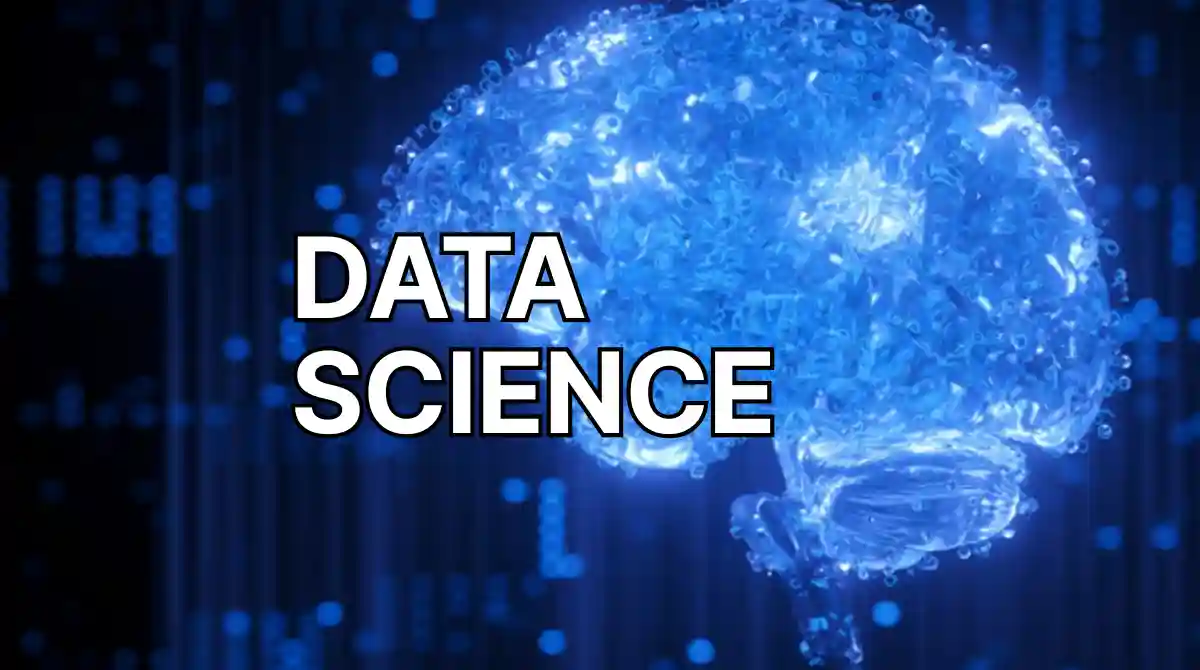Data science has become a critical skill for BBA students in today’s data-driven business world. It enables them to analyse information effectively, make informed decisions, and improve business strategies. Understanding data science is no longer optional but a necessity to stay competitive in various industries.
By learning data science, BBA students gain valuable tools such as data analysis, visualisation, and interpretation, which are essential in business management. These skills allow them to solve problems with evidence rather than intuition, leading to better outcomes.
Moreover, knowledge of data science opens up a wider range of career opportunities, from marketing analytics to financial modelling. As businesses increasingly rely on data, BBA graduates with these skills will be better prepared to meet future challenges.
Relevance of Data Science in Modern Business Administration Intelligence
Data science integrates analytical tools and techniques that streamline business operations and improve efficiency. It enables actionable insights from complex datasets, supporting various facets of business management.
Bridging the Gap Between Business and Technology
Data science connects traditional business principles with technological innovations. It equips BBA students with the skills to interpret technical data within a business framework.
This bridging allows professionals to communicate effectively with IT teams, ensuring alignment on organisational goals. Understanding both domains reduces miscommunication and fosters collaboration for technology-driven solutions.
It also enables businesses to leverage emerging tools like AI and machine learning to improve processes. BBA graduates trained in data science can serve as liaisons who translate technical information into strategic business decisions.
Enhancing Decision-Making Processes
Data science provides a foundation for evidence-based decision-making in business. By analysing trends and patterns, it helps predict outcomes more accurately.
BBA students learn to use statistical and visualisation tools to identify key performance indicators. These insights guide managers in resource allocation, risk management, and market positioning.
The approach reduces reliance on intuition and assumptions, favouring data-backed choices. It also enables real-time analysis, increasing the agility and responsiveness of business leaders.
Supporting Data-Driven Strategies
Business strategies benefit from data-driven planning as it highlights customer behaviour, operational inefficiencies, and market opportunities. This insight drives targeted marketing, product development, and competitive analysis.
BBA students trained in data science can develop strategies prioritising measurable objectives and continuous improvement. They learn to design experiments, track outcomes, and adjust tactics based on solid evidence.
Such an approach aligns business goals with quantifiable data, enhancing accountability and effectiveness. It prepares students to lead initiatives grounded in factual analysis rather than speculation.
Core Data Science Skills Beneficial to BBA Students
Data science equips BBA students with essential abilities to handle business data effectively. These skills range from critical analysis to the communication of insights through visual tools. Mastery of these areas supports better decision-making and strategic thinking.
Analytical Thinking and Problem-Solving
Analytical thinking enables students to break down complex business problems into manageable parts. It involves examining data patterns, trends, and inconsistencies to identify actionable solutions.
Problem-solving skills allow students to apply logical steps when working with data, fostering methodical approaches to business challenges. They learn to hypothesise, test, and validate findings using data-driven methods.
This skillset strengthens their capability to make informed choices, increasing operational efficiency and strategic clarity. Employers value these competencies for roles involving data interpretation and business analytics.
Statistical Literacy and Interpretation
Statistical literacy helps students understand and use quantitative data accurately. It includes knowledge of measures such as mean, median, standard deviation, and probability distributions.
BBA students must interpret results from surveys, sales figures, and market research confidently. This aids in evaluating business performance, customer behaviour, and financial trends.
Understanding statistical significance and margins of error prevents misinterpretation of data reports. Students gain critical skills to assess risks and forecast outcomes based on evidence rather than assumptions.
Data Visualisation Techniques
Data visualisation skills enable students to present complex data clearly through charts, graphs, and dashboards. Effective visualisation supports faster comprehension and communication of insights to stakeholders.
Students learn to use software tools like Excel, Tableau, or Power BI. They focus on selecting the right visual formats to highlight key information without clutter or distortion.
Mastering this skill enhances presentations, reports, and marketing strategies by translating raw data into persuasive, understandable visual stories. Visualisation is crucial for bridging gaps between technical data and business decision-makers.
Career Opportunities Created by Data Science Knowledge
Data science skills open various career paths for BBA students, enhancing their roles and value in business environments. These competencies help them secure competitive positions and prepare for leadership responsibilities.
Expanding Roles in Business Analytics
Data science enables BBA graduates to work in roles such as business analyst, data analyst, and market research analyst. These positions require processing and interpreting large datasets to guide business decisions.
Companies increasingly rely on data-driven insights to optimise marketing strategies, improve customer experience, and streamline operations. Business analytics roles demand proficiency in tools like Excel, SQL, Python, and Tableau.
BBA students with data science knowledge contribute to sectors including finance, retail, consulting, and technology. This skill set helps them engage in forecasting, risk management, and performance measurement.
Competitive Advantage in the Job Market
Knowledge of data science provides BBA graduates with an edge when applying for jobs. Employers prioritise candidates who can transform data into actionable insights.
Having technical skills like data visualisation and statistical analysis sets them apart from peers limited to traditional business knowledge. This advantage often leads to higher salary offers and faster career progression.
BBA students versed in data science also adapt more quickly to roles requiring digital literacy and analytical thinking. They fit well into evolving industries emphasising innovation and technology.
Preparation for Managerial Positions
Data science prepares BBA graduates for supervisory and managerial roles by enhancing decision-making abilities. Managers must understand data trends to plan resources and strategy effectively.
The ability to interpret data supports leadership in budgeting, market analysis, and identifying growth opportunities. It also improves communication with technical teams.
Managers with data expertise can implement data-driven cultures in organisations, increasing efficiency and accountability across departments. This readiness is critical for modern business leadership.
Real-World Applications in Business Management
Data science plays a critical role in extracting valuable information from large data sets to improve decision-making. It allows businesses to better understand their customers and optimise internal processes effectively.
Customer Insights and Market Analysis
Data science helps businesses analyse customer behaviour through patterns in purchasing, preferences, and feedback. By using techniques like clustering and sentiment analysis, companies can segment customers and tailor marketing strategies to specific groups.
Predictive analytics forecasts future trends and customer needs, improving product development and marketing campaigns. It enables precise targeting, increasing customer engagement and retention.
For example, retail businesses use data science to personalise offers based on shopping history. This drives sales while reducing marketing costs by focusing resources on the most relevant audience.
Improving Operational Efficiency
Data science is essential for streamlining business operations by identifying inefficiencies and optimising resource allocation. Using data-driven insights, managers can reduce costs and improve productivity.
Processes such as supply chain management benefit from forecasting demand and optimising inventory levels. This decreases waste and ensures timely delivery.
Additionally, predictive maintenance in manufacturing anticipates equipment failures, preventing downtime and expensive repairs. Data science also aids in workforce management by analysing performance and scheduling effectively.
Future Trends: The Growing Importance of Data Science for Business Students
Data science is becoming a central skill for business students due to rapid technological advances and evolving market demands. This trend influences educational content and the skill sets needed to succeed in a data-driven economy.
Integration of Data Science into Business Curricula
Business schools are increasingly embedding data science within their core curricula. This shift equips students with skills in data analysis, visualisation, and basic programming languages such as Python and R.
Courses now often include case studies using real datasets to simulate business decision-making. These practical experiences help students understand how data can improve marketing, finance, and operations strategies.
In addition, interdisciplinary approaches combine business knowledge with technical skills, fostering well-rounded graduates. Institutions also encourage collaboration between departments of business and computer science to keep the curriculum relevant.
Adaptability in a Data-Driven Economy
Business students must adapt to a rapidly changing workplace where data guides strategy. Familiarity with data science tools allows them to identify patterns and make evidence-based decisions.
Employers favour candidates who can translate complex data into actionable insights. This capability supports roles across sectors like retail, banking, and consulting.
Skills in data science enable graduates to anticipate market trends and enhance customer experiences. They also improve operational efficiency by optimising resources and reducing costs.
Mastering these skills prepares students to respond to technological disruptions and shifts in consumer behaviour confidently.




